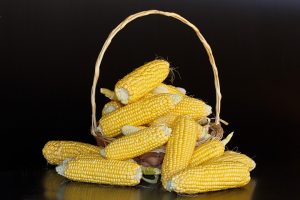Agriculture
ICAR Has Raised A Pest Alert For India’s Maize Crop
A pest by the name Fall Armyworm has entered the maize fields of India and it can become a concern across Asia if not controlled reports the Hindustan Times. According to the Indian Council of Agricultural Research (ICAR) – National Bureau of Agricultural Insect Resources (NBAIR), a pest alert was raised on 30th July after observing 70 percent prevalence of the invasive worm in a maize field in Chikkaballapur, Karnataka.
Maize Crops In Danger
These surveys were conducted between 9th to 18th July and saw the rise in Fall Armyworm (Spodoptera frugiperda) who’s larvae identity matched with the insect’s genetic sequence database of those found in Canada and Costa Rica. Currently the scientists at the ICAR have said that the worm has spread to maize fields in eight to nine districts of Karnataka that includes Shimoga, Bellary, Belgaum and Hassan and has caused a damage of 35 percent to 20-25 day young crops.

Though only maize crops have been attacked by the worm, AN Shylesha, principal scientist, ICAR-NBAIR told the Hindustan Times that, “There could be an outbreak with high rainfall, more cloud cover, and low temperatures as the insect’s ability to hatch increases with such a weather pattern. So the next two to three monsoon months are crucial.”
How Invasive Is This Worm
This particular worm was found in the US for about a century and was then traced in Nigeria two years back after which it spread to about 40 African countries. This resulted in a major damage to the maize crop, the staple food in the region. The scientists at ICAR-NBAIR told the publication that it is difficult to find out how the worm entered the maize fields of India but its presence was revealed only after the general survey which was conducted recently.
“We found that while one worm was similar to Mythimna Separata (Oriental Armyworm), which is native to India in terms of crop damage, its larval characteristics were different. We therefore collected more of this new specie, reared them to adult stage in the laboratory and also conducted molecular identification to infer the first record of the Fall Armyworm in India,” Shylesha told the Hindustan Times. He also told the publication that the pest has been in the country for a few years but has gone unnoticed. “We got fooled by its similarity to Mythimna Separata, and therefore overlooked,” he added.





















